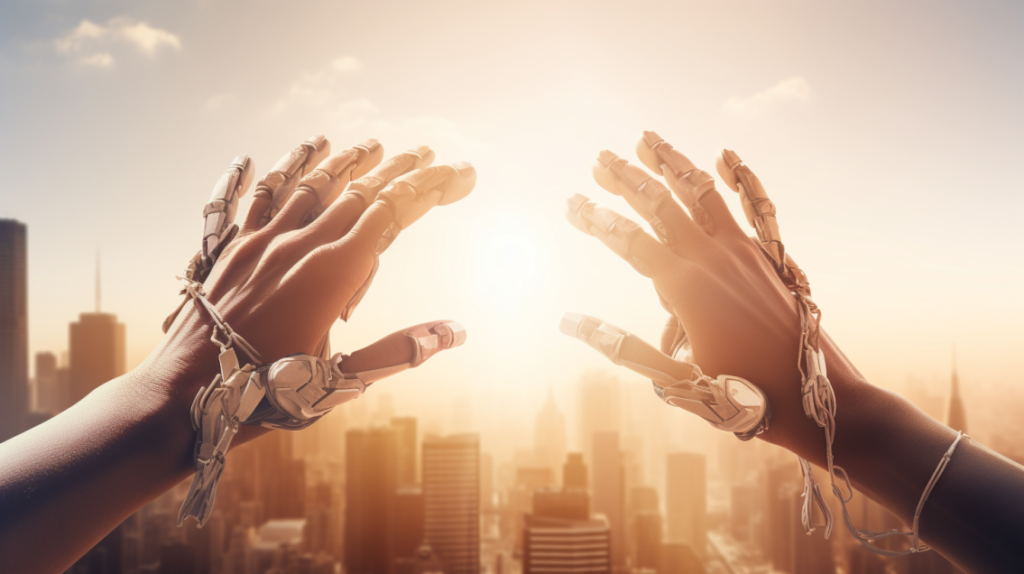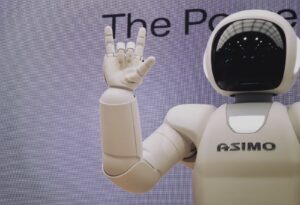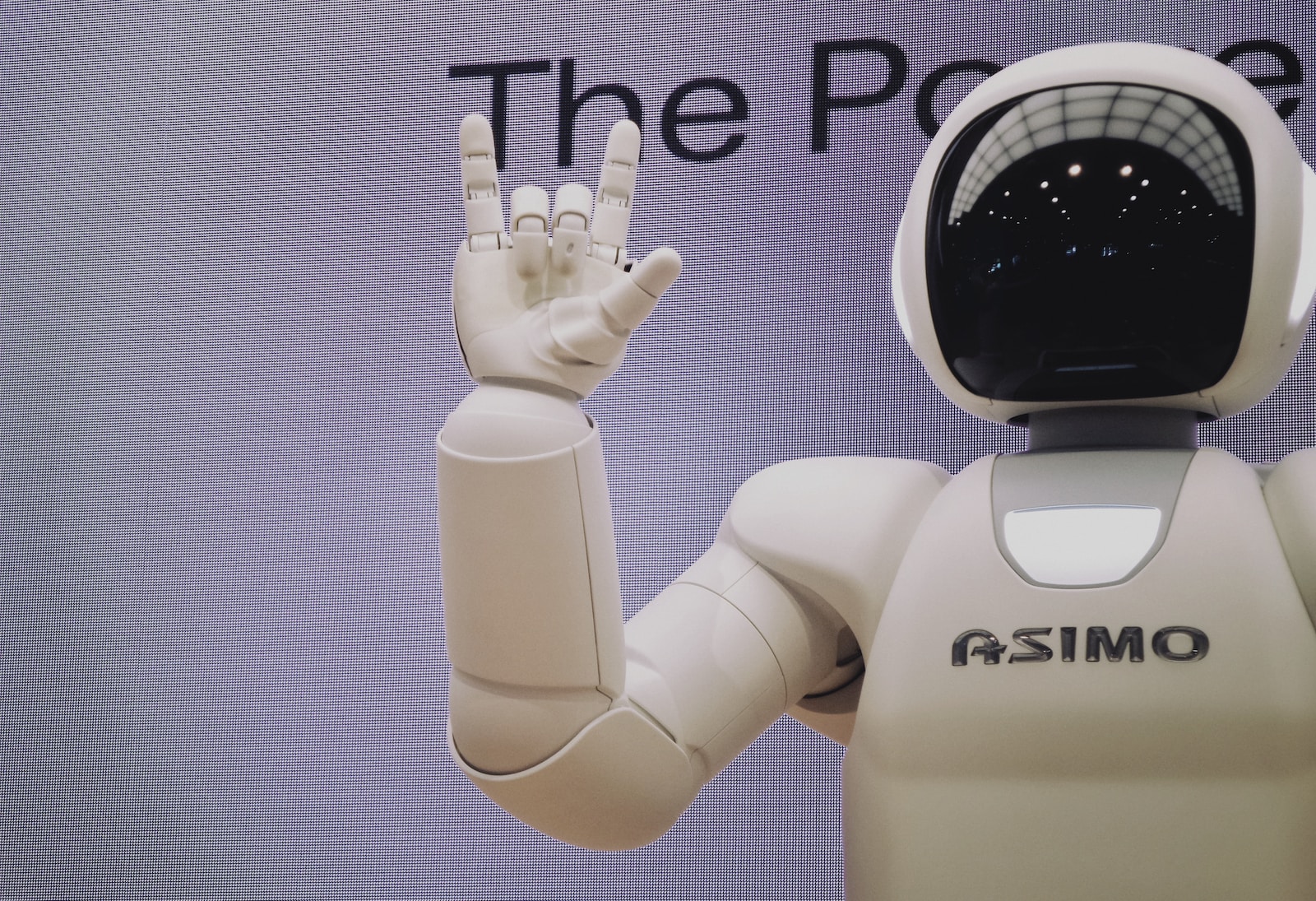Artificial intelligence (AI) is no longer a futuristic concept, but a reality that has revolutionized the world. From the way we live to the way we work, AI is transforming every aspect of our lives. However, as AI technology advances, it raises questions about the capabilities of human intelligence. This article will compare AI and human intelligence, exploring their similarities, differences, and potential implications.
1. Introduction
The development of AI has been a major technological breakthrough in recent years. AI can perform complex tasks, analyze large amounts of data, and even learn from their experiences. While human intelligence has long been considered superior to all other forms of intelligence, the increasing capabilities of AI have led to questions about the relative strengths and weaknesses of AI and human intelligence.

2. What is AI?
AI is a broad field that encompasses a range of technologies and applications. At its core, AI involves the use of algorithms and statistical models to analyze data, learn from it, and make predictions or decisions. AI is designed to mimic human cognitive functions such as perception, reasoning, and learning. AI has a range of applications, from self-driving cars to voice assistants, and from fraud detection to personalized medicine.
One of the key features of AI is its ability to perform complex tasks with a high degree of accuracy and speed. This makes AI well-suited to tasks that are difficult, tedious, or dangerous for humans to perform. AI can also handle vast amounts of data, which allows it to identify patterns and relationships that might be impossible for humans to detect.
3. Types of AI
There are three types of AI: narrow or weak AI, general or strong AI, and superintelligence. Narrow AI is designed to perform a specific task, such as playing chess or recognizing faces. Narrow AI is the most common type of AI and is currently used in a wide range of applications, including natural language processing, image recognition, and recommendation systems.
General AI, on the other hand, is designed to perform any intellectual task that a human can do. This type of AI is still largely theoretical and is not yet a reality. General AI would require a level of flexibility and adaptability that current AI systems do not possess.
Superintelligence refers to AI that surpasses human intelligence in every possible way. This type of AI is also still largely theoretical, but it has been the subject of much debate and speculation. Some experts argue that superintelligence could be a transformative technology that could solve some of the world’s biggest problems, while others warn of the potential dangers of creating an AI that is more intelligent than humans.
4. How Does AI Work?
AI works by processing large amounts of data, identifying patterns and relationships, and using these to make predictions or decisions. This involves four stages: data collection, data processing, decision-making, and feedback.
The first stage of AI involves collecting data. This can involve a range of techniques, including web scraping, sensors, and manual data entry. The data is then stored in a database, which can be accessed and analyzed by the AI system.
The second stage of AI involves processing the data. This can involve a range of techniques, including statistical modeling, machine learning, and deep learning. The AI system uses these techniques to identify patterns and relationships in the data.
The third stage of AI involves decision-making. Based on the patterns and relationships identified in the data, the AI system makes predictions or decisions. These predictions or decisions can be used to automate tasks or provide insights to humans.
The fourth stage of AI involves feedback. As the AI system makes predictions or decisions, it receives feedback on its performance. This feedback can be used to improve the system’s performance over time.
5. Advantages of AI
One of the major advantages of AI is its ability to perform complex tasks with a high degree of accuracy and speed. This can be particularly useful in industries such as healthcare, where AI can be used to analyze medical images and make more accurate diagnoses. AI can also be used to automate repetitive tasks, which can free up human workers to focus on more creative or complex tasks.
AI can also handle vast amounts of data, which allows it to identify patterns and relationships that might be impossible for humans to detect. This can be particularly useful in industries such as finance and marketing, where AI can be used to analyze large datasets and make more accurate predictions.
6. Disadvantages of AI
Despite its many advantages, AI also has some significant disadvantages.
One of the major concerns about AI is the potential loss of jobs. As AI systems become more advanced, they are increasingly able to perform tasks that were previously done by humans. This can lead to job displacement and unemployment, particularly in industries that rely heavily on manual labor.
There are also concerns about the ethical implications of AI, particularly in relation to privacy and security. As AI systems collect and analyze vast amounts of data, there is a risk that this data could be used for malicious purposes. Additionally, there are concerns about the potential for bias and discrimination in AI systems, particularly those that use machine learning algorithms.
Another major disadvantage of AI is that it can make mistakes or be biased. This can have serious consequences, particularly in industries such as healthcare and finance. If an AI system makes a mistake in diagnosing a medical condition, for example, this could have life-threatening consequences for the patient.
7. What is Human Intelligence?
Human intelligence refers to the mental abilities that enable us to think, reason, and learn. It includes cognitive functions such as perception, memory, language, and problem-solving. Human intelligence is often seen as a unique and complex trait that distinguishes us from other animals.
One of the key features of human intelligence is its flexibility and adaptability. Humans are able to learn new skills and adapt to new situations, which allows us to survive and thrive in a range of environments. Human intelligence is also characterized by emotional intelligence, which allows us to understand and navigate social situations.
8. Differences between AI and Human Intelligence
There are several key differences between AI and human intelligence. One of the most significant differences is that AI is designed to perform specific tasks, whereas human intelligence is more flexible and adaptable. Human intelligence is also characterized by emotional intelligence, which allows us to understand and navigate social situations.
Another difference between AI and human intelligence is that AI is limited to what it has been programmed to do, while human intelligence has the ability to be creative and innovate. Human intelligence can also learn from a small amount of data, while AI requires large amounts of data to learn and improve its performance.
9. AI and Human Intelligence: Complement or Compete?
The relationship between AI and human intelligence is a complex one. While some fear that AI will replace human intelligence in various industries, others argue that AI can complement human intelligence and enhance our capabilities.
For example, AI can analyze large amounts of medical data to help doctors make more accurate diagnoses and treatment plans. Additionally, AI can handle dangerous or tedious tasks that might be too risky or boring for humans. AI can also free up human workers to focus on more creative or complex tasks, which can enhance our capabilities in a range of industries.
However, there are also concerns about the potential for AI to replace human workers in various industries, particularly those that rely heavily on manual labor. It is important to ensure that the development of AI is done in a way that benefits humanity as a whole, and that AI is used to complement and enhance human intelligence, rather than replace it.
10. Ethical and Social Implications
The development of AI raises several ethical and social implications. One of the main concerns is the potential loss of jobs, particularly in industries that rely heavily on manual labor. Additionally, there are concerns about the impact of AI on privacy and security, as well as the potential for bias and discrimination.
To address these concerns, it is important to ensure that the development of AI is done in an ethical and responsible manner. This includes ensuring that AI is developed with the best interests of society in mind, and that it is used to benefit humanity as a whole. It is also important to ensure that AI systems are transparent and accountable, and that they are designed to
avoid bias and discrimination. Additionally, it is important to consider the impact of AI on jobs and the workforce, and to develop policies and programs to support workers who are displaced by AI systems.
Another important ethical consideration is the impact of AI on privacy and security. As AI systems collect and analyze vast amounts of data, there is a risk that this data could be used for malicious purposes. It is important to ensure that AI systems are designed with privacy and security in mind, and that they comply with relevant regulations and standards.
11. AI and Human Intelligence in the Future
The future of AI and human intelligence is uncertain. While AI is advancing at an unprecedented rate, there are still many tasks that humans can do better than machines. It is likely that AI and human intelligence will continue to complement each other in various industries, but it is also important to ensure that AI is developed in a way that benefits humanity as a whole.
As AI systems become more advanced, there is also the possibility that they will become more human-like in their capabilities and behaviors. This raises questions about the potential implications of creating AI systems that are indistinguishable from humans, and the ethical and social implications of such systems.
12. Conclusion
In conclusion, AI and human intelligence have their respective strengths and weaknesses. While AI can perform complex tasks with a high degree of accuracy and speed, human intelligence is more flexible, adaptable, and has emotional intelligence. The relationship between AI and human intelligence is a complex one, and it is important to ensure that AI is developed in an ethical and responsible manner, and that it benefits society as a whole.
13. FAQs
AI has made significant advances in recent years, but it is still not clear whether it can surpass human intelligence in every possible way. While AI can perform specific tasks with a high degree of accuracy and speed, human intelligence is more flexible and adaptable, and has emotional intelligence.
One of the major advantages of AI is its ability to perform complex tasks with a high degree of accuracy and speed. This can be particularly useful in industries such as healthcare and finance, where AI can be used to analyze large amounts of data and make more accurate predictions.
Despite its many advantages, AI also has some significant disadvantages. One of the major concerns is the potential loss of jobs, particularly in industries that rely heavily on manual labor. Additionally, there are concerns about the ethical implications of AI, particularly in relation to privacy and security.
Emotional intelligence refers to the ability to understand and navigate social situations. It is a key component of human intelligence, and is characterized by empathy, social skills, and self-awareness.
AI and human intelligence can complement each other in a range of industries. AI can be used to automate repetitive tasks, handle vast amounts of data, and provide insights to humans. Meanwhile, human intelligence can provide creativity, innovation, and emotional intelligence to enhance the capabilities of AI systems.








